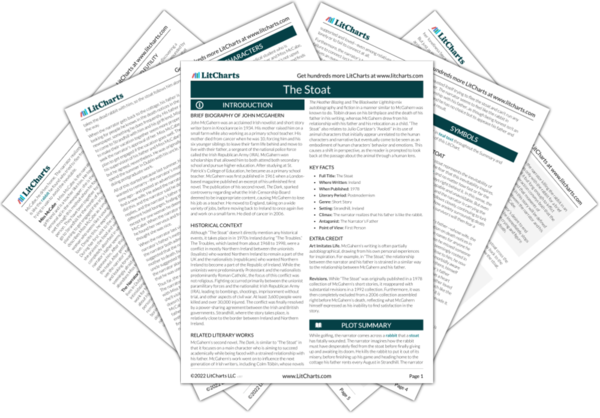Before her heart attack, Miss McCabe’s interest in the future would have perfectly aligned with the narrator’s father’s thoughts and intentions for a long-term relationship, earning his approval. But now that he has written her off in his mind because of her poor health, her long-term thinking becomes a flaw in his eyes. Instead of discussing this with her, he decides to run. In this moment, the narrator identifies his father as the rabbit fleeing from the stoat. Just as the rabbit tried to escape its imminent death, he is attempting to outrun the possibility of loss, grief, and death—but avoiding these things won’t get him any further away from the inevitable. Despite only being in Strandhill to see his father and Miss McCabe, the narrator chooses to stay rather than go with his father. This defines him as being unlike the rabbit; as he watches his father flee, he refuses to go with him. His father’s inability to face what scares him and to stay for the sake of Miss McCabe or his son makes the narrator admit he is ashamed of him. Their relationship seems to be firmly and definitively splitting in this moment.
